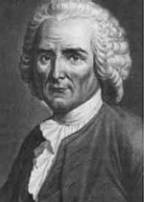"Praying the Ordinary"
I recently ran across an interesting passage in Richard Foster's book Prayer: Finding the Heart's True Home. My eye fell on Chapter 15's title, and I began reading. Here's what Foster has to say in his chapter, "Praying the Ordinary."
Many of us today live in a kind of inner apartheid. We segregate out a small corner of pious activities and then can make no spiritual sense out of the rest of our lives. We have become so accustomed to this way of living that we fail to see the contradiction in it. The scandal of Christianity in our day is the heresy of a 5 percent spirituality.
We overcome this modern heresy by Praying the Ordinary. We pray the ordinary in three ways: first, by turning ordinary experiences of life into prayer; second, by seeing God in the ordinary experience of life; and third, by praying throughout the ordinary experiences of life (169).
And later Foster gives an example drawn from the hard work (prayer) that he did during a summer spent in Alaska working with Eskimo Christians:
I had come to Kotzebue on the adventure of helping to "build the first high school above the Arctic Circle." But the work itself was far from an adventure. It was hard, back-breaking labor. Once day I was trying to dig a trench for a sewer line--no small task in a world of frozen tundra. An Eskimo man whose face and hands displayed the leathery toughness of many winters came by and watched me for a while. Finally he said simply and profoundly, "You are digging a ditch to the glory of God." He said it to encourage me, I know, and I have never forgotten his words. Beyond my Eskimo friend no human being ever knew or cared whether I dug that ditch well or poorly. In time it was to be covered up and forgotten. But because of my friend's words, I dug with all my might, for every shovelful of dirt was a prayer to God. Even though I did not know it at the time, I was attempting in my small and unsophisticated way to do what the great artisans in the Middle Ages did when they carved the backside of a piece of art, knowing that God alone would see it (172).
These times and many more are lived prayer. Ignatius of Loyola notes, "Everything that one turns in the direction of God is prayer" (174).
I often feel like I spend most of my time digging ditches above the Arctic Circle. Wouldn't it be interesting if in some way my ditches also are dug to the Glory of God.
Best wishes,
Mason Smith


